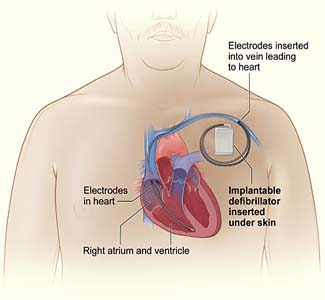Genetic Variation Protects From Sudden Cardiac Arrest
 A genetic variation linked with lower chance of sudden cardiac arrest has been discovered by physician-researchers at the Cedars-Sinai Heart Institute.
A genetic variation linked with lower chance of sudden cardiac arrest has been discovered by physician-researchers at the Cedars-Sinai Heart Institute.
The discovery will be released in Public Library of Science (PloS One).
The invention came from a genome-wide association research that probes the complete set of human genes to discover possible linkages between genetic mutations and detailed conditions or illnesses.
In the research, the Cedars-Sinai Heart Institute researchers equated the genetic makeup of 424 subjects who had experienced sudden cardiac arrest to the DNA of 226 control subjects without any record of the problem. All patients had a history of atherosclerosis that commonly underlies unexpected cardiac arrest.
Based after comparing the two groups, a genetic variation at the location of the GPC5 gene (a genetic sequence known as rs3864180) was said to be connected with a reduced possibility of sudden cardiac arrest.
Sumeet S. Chugh, M. D., associate director of the Cedars-Sinai Heart Institute, holder of The Pauline and Harold Price Chair in Cardiac Electrophysiology Research, and one of the senior authors of the study said, "If you have this genetic variation in your DNA, it appears that you may have a 15 percent lower likelihood of sudden cardiac arrest."
"This kind of genetic analysis is not aimed at identifying a single big gene defect or mutation," he said. "The goal is to identify a series of smaller novel gene defects that, when grouped together, collectively result in either a protective effect or an increased susceptibility to sudden cardiac arrest." (With Input from Agencies)